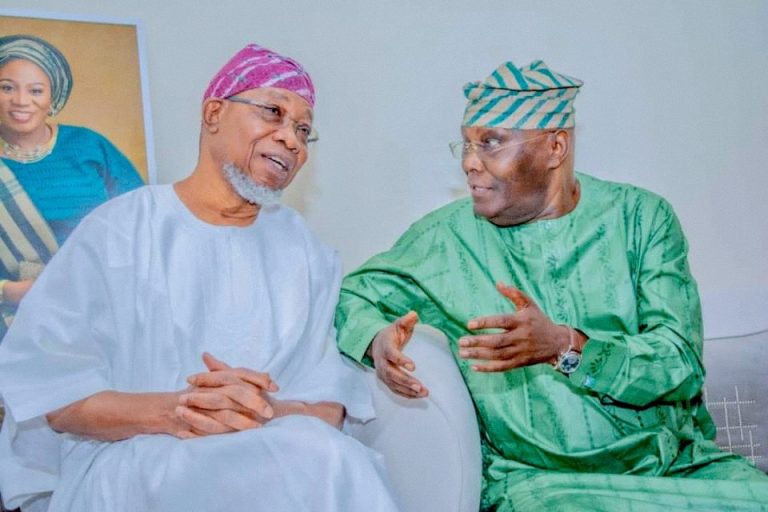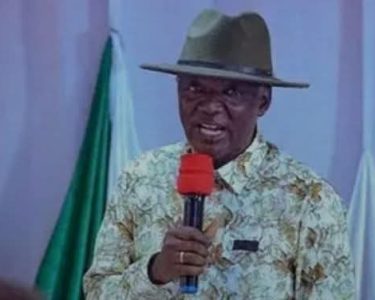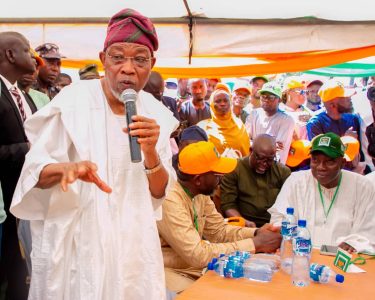In the ever-dynamic terrain of Nigerian politics, where loyalty often shifts like desert sand and self-interest governs allegiance, the hypocrisy of selective outrage has become a defining trait among many political commentators and partisans.
This was once again on full display following the recent political move by Ogbeni Rauf Aregbesola, who hosted former Vice President Atiku Abubakar in a move many interpret as aligning against President Bola Ahmed Tinubu ahead of 2027.
The outrage was deafening. Social media warriors, loyal to Tinubu, barked and howled like mad dogs betrayed forgetting conveniently that not long ago, they cheered on the betrayal of Mallam Nasir El-Rufai by Governor Uba Sani with deafening applause.
They made it a national celebration, applauding Uba Sani’s political independence and strategic alignment with Tinubu, despite the fact that El-Rufai practically made him.
So let’s get this straight: when betrayal benefits Tinubu, it’s smart politics. But when it threatens his dominance, it’s treason?
Let’s rewind.
Uba Sani and El-Rufai: The Political Son Who Turned His Back
Uba Sani did not rise to prominence in Kaduna politics by accident. He was lifted by El-Rufai, nurtured under his wings, and positioned strategically for succession. But the moment he sensed a shift in national power dynamics, he began aligning with the center Tinubu’s camp and publicly distanced himself from his political father.
Those who now cry foul over Aregbesola’s hospitality to Atiku applauded Uba Sani’s pivot. They called it maturity, political wisdom, and “realignment for the greater good.” El-Rufai, they said, was “too stubborn,” “too anti-Tinubu,” and deserved to be left behind.
Yet, in both cases whether Uba turning his back on El-Rufai or Aregbesola challenging Tinubu’s grip the core issue is the same: political disloyalty rooted in personal ambition. Why then the double standard?
Wike vs. Fubara: Another Case of Convenient Justification
Let’s not forget how Nyesom Wike, backed by the Tinubu-led federal power structure, launched a political war against Governor Sim Fubara in Rivers State.
The same voices now outraged at Aregbesola were quiet some even jubilant when Wike installed lawmakers to impeach Fubara and used federal might to arm-twist a sitting governor.
To them, it was political chess. They justified it with phrases like the center must hold and Wike is protecting his legacy. But when Aregbesola hosts a known political rival in his own home and drums of 2027 ambitions begin to echo, it suddenly becomes sacrilege and betrayal of the highest order.
The Aregbesola-Tinubu Story: A History of Loyalty and Fracture
Let’s be clear: Aregbesola was a key foot soldier in the Tinubu political machine for over two decades. From Lagos to Osun, he served loyally and passionately. But fractures began to emerge when Aregbesola opposed Tinubu’s preferred candidate during the Osun governorship primaries and later openly rebelled during the 2022 elections.
He was pushed aside, denied his place at the table, and watched as his political legacy was erased.
What followed was political exile, internal humiliation, and calculated exclusion from Tinubu’s inner circle. His homecoming into Atiku’s embrace is not just political it is personal. It is a statement that even loyalists, when ostracized, can find new alliances.
The Irony: Tinubu’s Political Style Created This Climate
Tinubu’s political rise has been built on strategic empowerment of loyalists many of whom turned into formidable power brokers. But the same system that builds men can also become a threat when those men feel discarded.
Aregbesola, El-Rufai, even Wike they are all products of the same system that rewards loyalty but punishes disobedience.
So if Tinubu loyalists can hail one man for breaking away from his political godfather, they cannot cry foul when another man does the same especially when the tables have turned.
Betrayal Is Betrayal—Don’t Cherry-Pick
The truth is simple: you can’t hail betrayal when it’s in your favor and condemn it when it’s against you. That’s not patriotism. That’s partisanship.
You can’t demonize Aregbesola for doing to Tinubu what Uba Sani did to El-Rufai. You can’t justify Wike’s oppression of Fubara while condemning dissent in Lagos.
If we must preserve the moral fabric of our democracy, we must call a spade a spade no matter who benefits. Because in the end, what goes around comes around. And those who build kingdoms on loyalty must remember that loyalty, like power, is never permanent.




